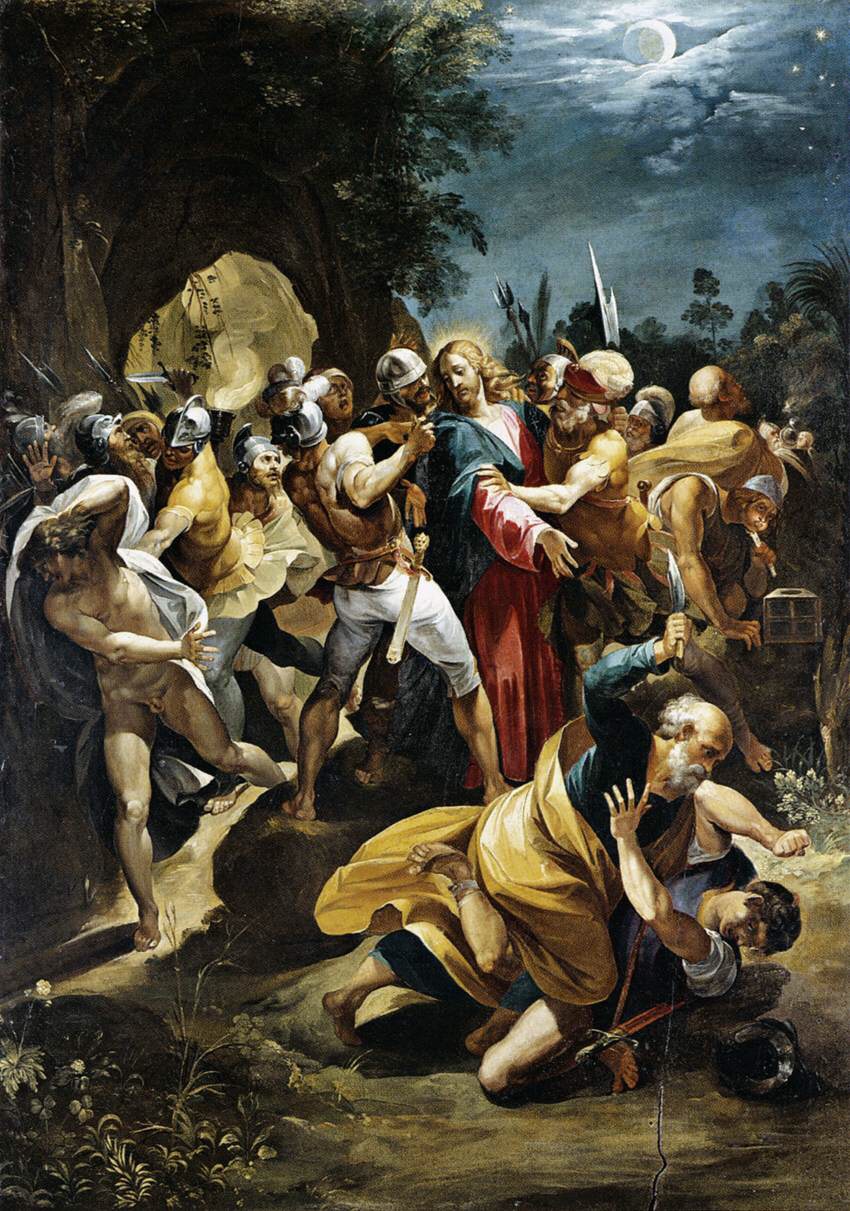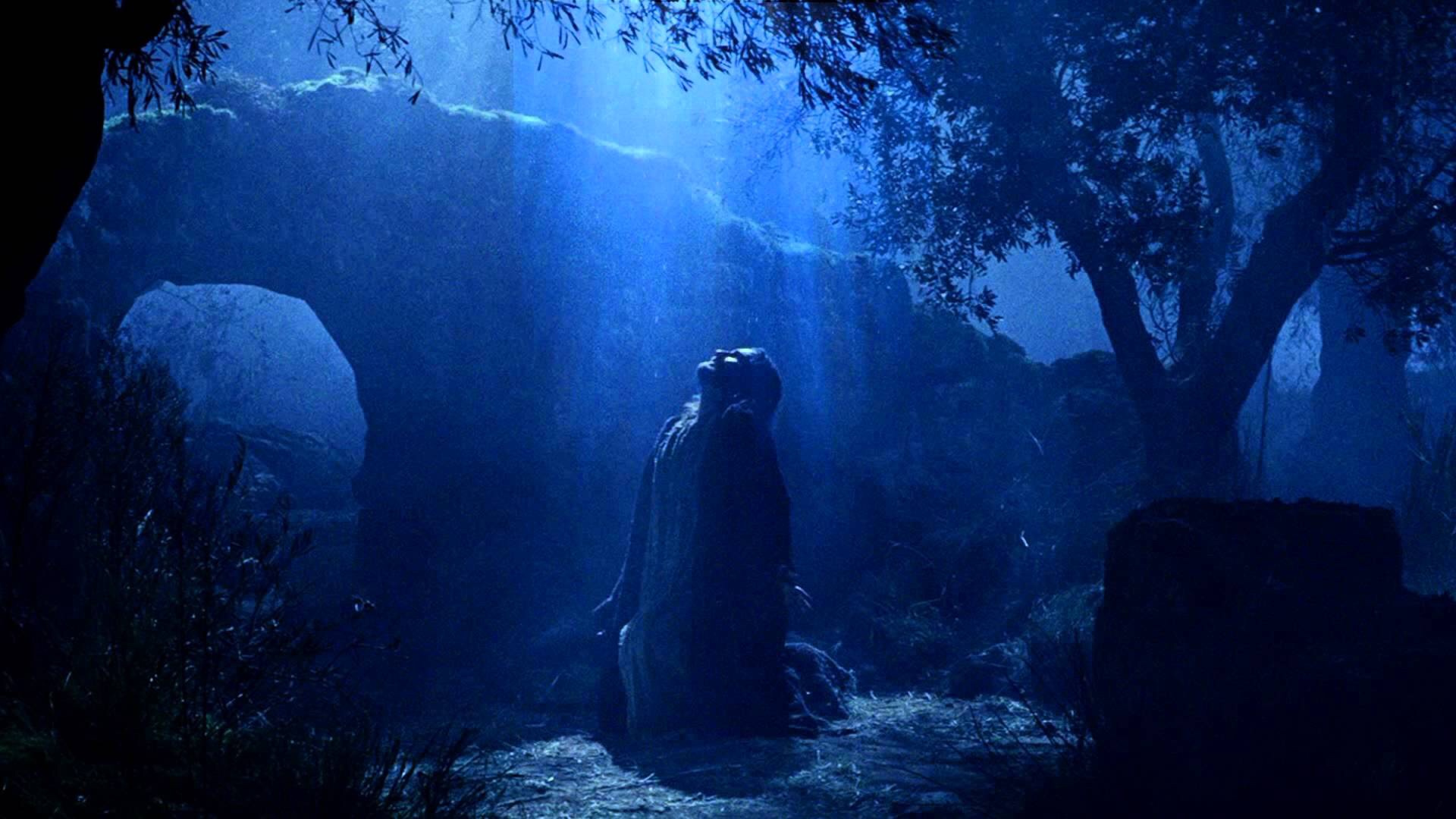I spent quite a while simply believing the Gospels. And I have spent quite a while being as skeptical of them as I think is reasonable.
Now I am at the point where I recognize the pitfalls at either extreme, and seek to be open to what the evidence suggests – and what the evidence points to is often not a solitary answer to historical questions, but a range of possibilities.
When it comes to questions of history related to the period in Jesus’ life commemorated in the Christian calendar by the week leading up to Easter, I understand fully the appropriately skeptical questions that not only can be asked, but need to be asked. How much of this is the later church retrojecting its theology and its concerns back onto the pre-Easter Jesus? How much is the church drawing theological conclusions and then presuming that, if they saw things that way from the perspective of hindsight, Jesus must have foreseen them?
And yet this week doesn’t just offer us historical questions, and points at which historical methods simplyhave nothing much to say. This week also offers some of our most solid historical bedrock. One thinks in particular of the crucifixion, which (despite many attempts by mythicists to insist otherwise) simply is not the kind of thing that one would be likely to make up about a figure that one is claiming to be the restorer of the Davidic dynasty to the throne.
But the crucifixion is not the only thing that jumps out at us from this week as more likely historical than not. The precise words of Jesus at the last supper are a problem – did Jesus really indicate that the bread was his body and the wine his blood, and foresee a future church that would commemorate him by repeating the ritual? Probably not – but between the Synoptic Gospels, the Gospel of John, and the Didache, a picture comes into view of something that may have been a more regular practice of Jesus’, to treat the meals at which he brought clean and unclean, zealot and tax collector, rich and poor together at table together as sacred and symbolic, but in a radically different manner than the purity-focused separation of the Pharisees. Gathered together like wheat to become one body, gathered together into a connection withumt the vine of David. Might Jesus have regularly said something at meals which, also said on the occasion of that fateful final meal, might have taken on greater significance from the perspective of hindsight, and inspired the Lord’s Supper?
One particular saying jumps out as unlikely to be invented: the nazarite vow that Jesus is depicted as making, foreswearing not only wine but all grape products, not until he has accomplished something, but until God has accomplished something. That isn’t part of the church’s ritual. And it seems to reflect a definite expectation on Jesus’ part. He will not be making a vow and then bringing it to completion. The end is near – whether it be in the form of his death, or the arrival of the kingdom, or both in conjunction with each other.
We also catch a glimpse of the historical Jesus in the story about the garden of Gethsemane. Disciples failing to keep watch, betraying and denying, resulting in their master’s apprehension. And yet (as Jerome Murphy-O’Connor pointed out), from the Mount of Olives, Jesus himself could have spotted the approaching crowd with torches coming from Jerusalem, and made a getaway. The idea that Christians interpreted Jesus’ death as divinely ordained for the salvation of humankind, and yet invented stories about Jesus trying to get out of going through with it, is implausible. For however much or little his disciples were awake, they probably heard Jesus praying something like what the Gospels record: let this cup pass from me.
The drawing of a sword and cutting off of an ear is also likely to be historical. It is unlikely to have been invented by authors who were clearly concerned to emphasize that Jesus was not a militant figure and that his followers were not a threat. And one should wonder whether, if a zealous disciple had not shed blood on that occasion, whether Jesus would merely have been kept locked up and prevented from causing a disturbance during Passover, rather than handed over for execution.
How did Jesus think about his death in advance of it happening? That is hard to say, since at precisely that point we can feel the least confident that we are seeing past the later theological developments to the historical figure of Jesus. But there are glimpses and deductions which provide a partial picture. If Jesus had not said things that were different from what other messianic claimants tended to, we would have little plausible explanation for how the movement around him continued where normally by definition a messianic movement would end, namely with the execution of the pretender by the foreign rulers that it was hoped he would oust. And so it seems plausible that Jesus really did interpret what was coming in terms of the imminent dawn of the kingdom of God. Did he expect to suffer and then for God to intervene? Did he expect to die and then rise with all the dead when the kingdom of God began? These questions we cannot answer with a high degree of certainty.
But if we say that Jesus could not see his death coming, we are being unduly skeptical. As a former disciple of John the Baptist, it is hard to imagine it never occuring to him that he might meet the same fate. And if Jesus went willingly to embrace his rejection by the powers that be, confident that the way of the true messiah was not to draw swords but to submit and allow God to be the one to vindicate, we have something that plausibly fits the impression the historical Jesus made on the one hand, while also helping us to understand how his followers could have sought and found ways to believe that he was the messiah even though he had been crucified.
And so, on the occasion of this week when Christians are reflecting on the story of the final week of Jesus, it is a good time to ask deep, probing historical questions, ones that are neither too credulous nor too skeptical, but which find the narrow path between the two extremes, the path that allows the historian to follow Jesus on the road that led to his crucifixion, and that led his followers beyond it.















